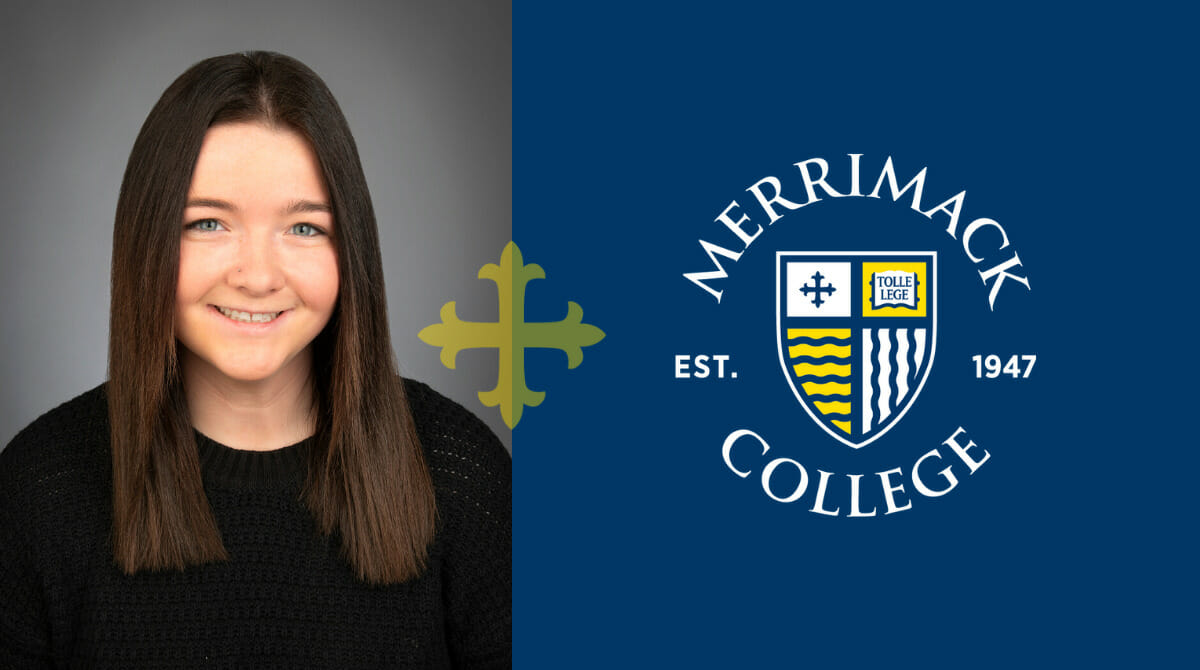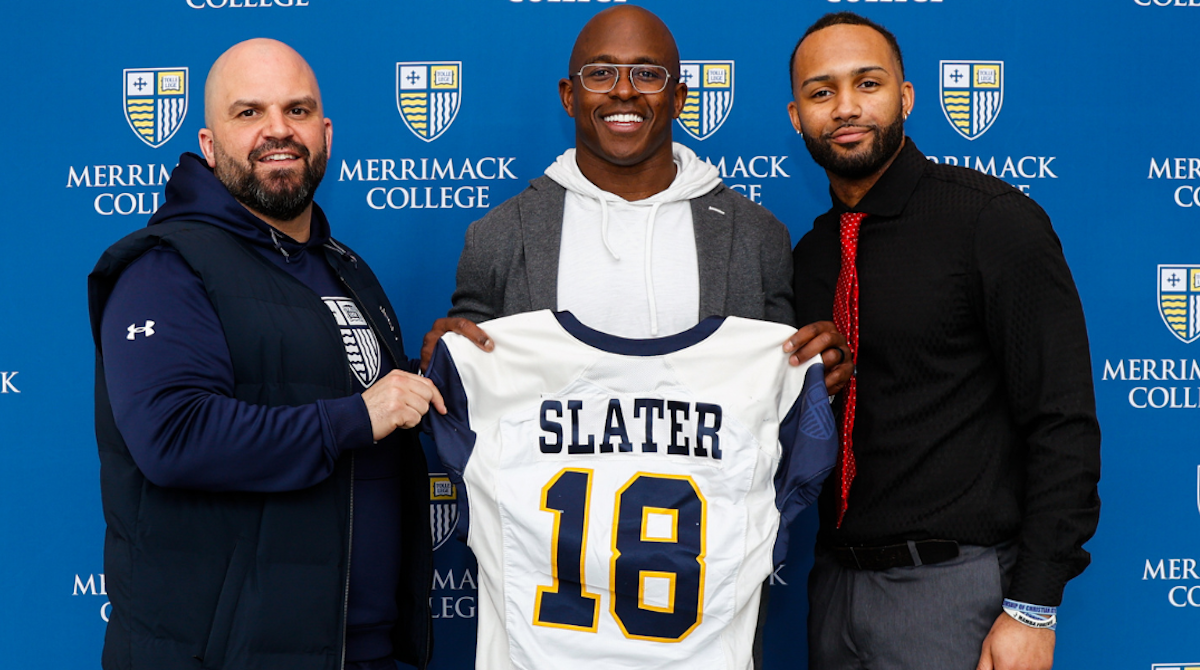The partial solar eclipse is scheduled to pass over North Andover starting at 1:28 p.m. and last about 2 hours and 30 minutes, peaking at 2:46 p.m. Sam Royston ’18 who works with Merrimack’s Mendel Observatory on community outreach, is setting up a telescope with an 8-inch aperture and a special viewing lens.
There will also be individual viewing glasses for observers to stare directly at the sun without damaging their eyes, according to assistant physics professor Chris Duston, who is in charge of the Mendel Observatory.
Royston and Duston were outside Mendel Center on Aug. 17 preparing the portable Celestron telescope for the eclipse. It was tricky because the earth’s orbit is constantly tracking the sun out of the telescope’s view, they said. They were working on a tracking feature for the scope to follow the trajectory of the eclipse.
The alignment of the sun and moon during an eclipse is an opportunity to consider the complicated movements of the two celestial bodies and their effects on earth, Duston said.
“I think that eclipses are exciting because they are right at the intersection between science and our everyday lives,” he said. “The sun and the moon are so fundamental to the human experience, but we rarely think carefully about how they move in the sky.”
Royston said he plans to be in the Crowe courtyard the entire length of the eclipse.
A solar eclipse happens when the moon passes between the earth and sun. Under the shadow of the moon, the sky darkens and the temperature cools. The eclipse this time is running from the Northwest United States toward the Southeast, following a trajectory from Oregon to South Carolina. The total eclipse will only be visible in a 70-mile-wide path and it will only be about 62.4 percent visible on the Merrimack campus.
The last solar eclipse visible over the United States was way back on Feb. 26, 1979, and the next on won’t come around until April 8, 2024, but that will be over Texas and won’t be visible in Massachusetts.
For those who can’t make it to Crowe courtyard, there are other ways to view the partial eclipse without damaging the eyes, said former adjunct professor Ralph Pass, who was in charge of the Mendel Observatory until his retirement this spring.
Cut a pinhole in a piece of cardboard and let the sunlight shine through it onto the ground or piece of paper; look on the ground under a leafy tree to see the shadow of the moon blocking the light; or, align a pair of binoculars to project the sun’s image on the ground.
Or form a hashtag symbol with your forefingers and middle fingers to form a shadow on the ground, Royston said.
Staring at the sun long enough can damage the eyes permanently. “You are essentially causing a sunburn on the inside of your eye, which normally doesn’t get direct sun,” Royston said.
Royston is a double major in STEM education and communications from Chelmsford, Mass. He’s planning a career in mass scientific education, explaining science and scientific theories to laymen.





